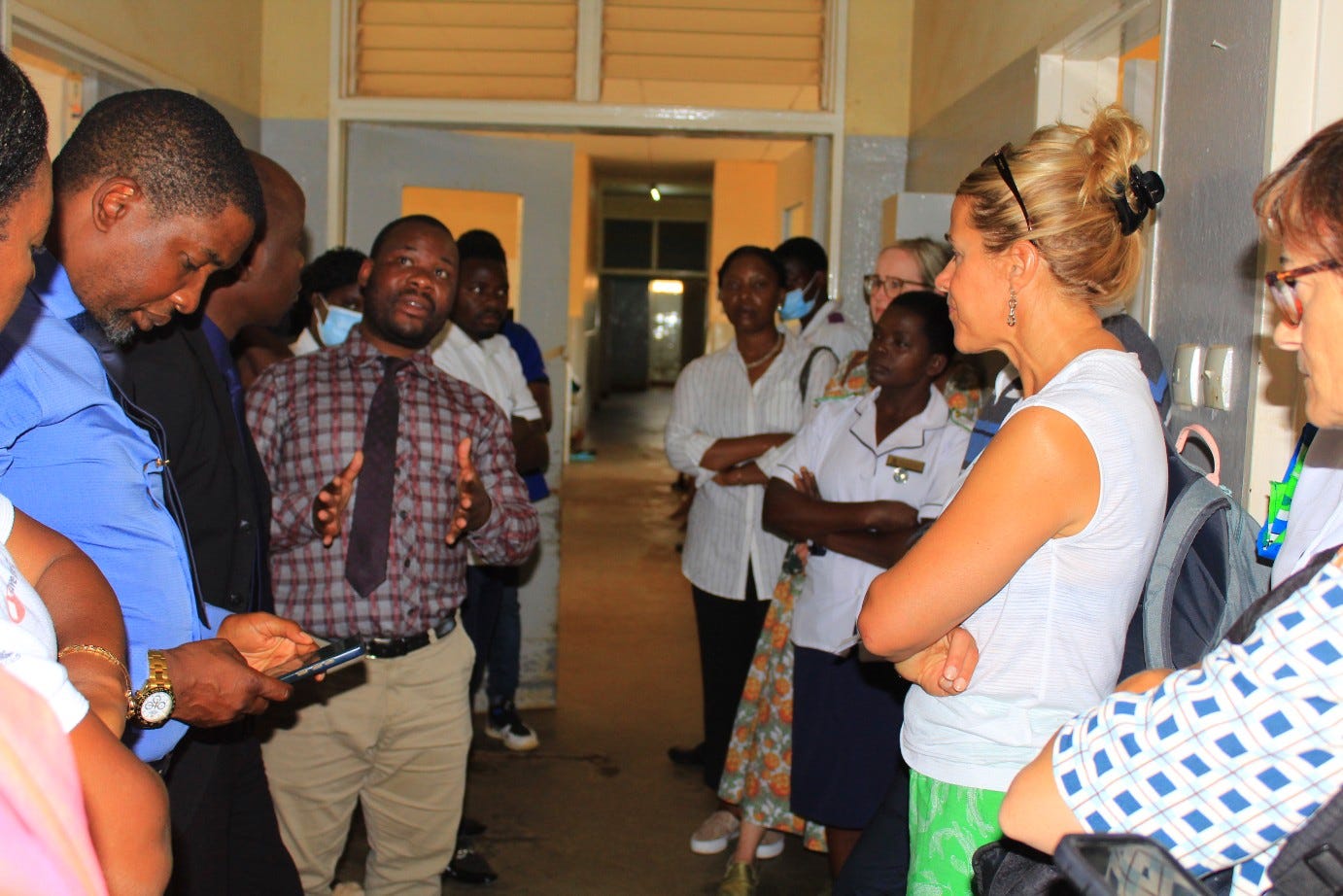Rising Unsafe Abortions Among Teen Girls in Kasungu District Cause Concern
Revealing the gravity of the situation, Dr. Golombe disclosed that in 2022, the hospital admitted approximately 1,100 women seeking post-abortion care.

KASUNGU, MALAWI - Officials at Kasungu District Hospital have expressed their growing concern over the escalating cases of unsafe abortions among teenage girls and young women in Kasungu district, writes Moses Nyirenda.
This pressing issue was highlighted during a visit by European Parliamentarians and members of the Malawi Parliament to Kasungu District Hospital, where they aimed to gain insights into the hospital's operations.
Dr. Emmanuel Golombe, the Director of Health and Social Services at Kasungu District Hospital, expressed deep concern about the rising tide of unsafe abortion cases, saying, "The cases of unsafe abortion are overwhelming us because 30 to 70 percent of our female wards are occupied by patients receiving post-abortion care, and we see a significant number of these patients in just one month."
Revealing the gravity of the situation, Dr. Golombe disclosed that in 2022, the hospital admitted approximately 1,100 women seeking post-abortion care.
He also emphasised the hospital's disturbingly high maternal mortality rates, with abortion complications accounting for approximately 5 to 15 percent of these cases and maternal deaths comprising about 28 to 30 percent of annual deaths.
Dr. Golombe attributed the surge in unsafe abortion cases to the lack of information concerning Sexual Reproductive Health (SRH), particularly among the youth, including teenage girls and young women in Kasungu district.
He stressed the crucial need to raise awareness about SRH among the youth as a primary step in addressing this pressing issue.
"The statistics of unsafe abortions among girls and women underscore gaps in various areas, most likely related to knowledge," Dr. Golombe stated.
"There is a pressing need for more community engagements on SRH to ensure that young people, especially girls and women, are well-informed about their options for preventing unwanted pregnancies."
Dr. Golombe further highlighted the importance of creating a conducive environment, such as youth corners, where young people can access information about SRH and engage in discussions to prevent unintended pregnancies.
He called for support from partners, including Non-Governmental Organisations (NGOs), to assist in providing youth with information and knowledge about SRH in an effort to reduce cases of unwanted pregnancies that often lead to unsafe abortions.
Dr. Golombe stressed the need for collaborative efforts to tackle this problem, saying, "We cannot address this issue in isolation. We need support from partners, NGOs, and policymakers to create awareness and provide young people with the knowledge and resources they need to make informed decisions about their sexual and reproductive health."
Laurence Zanchetta from Belgium, speaking on behalf of the European Parliamentarians participating in the study tour organized by the European Parliamentary Forum on Sexual and Reproductive Rights (EPF), expressed deep concern about the challenges surrounding SRH in Malawi.
She reiterated their commitment to assisting in addressing these pressing issues.
Ms. Zanchetta said, "We are deeply concerned about the rising cases of unsafe abortions among young girls and women in Kasungu district. This visit has underscored the urgent need to address this issue and ensure that young people have access to accurate information about sexual and reproductive health."


